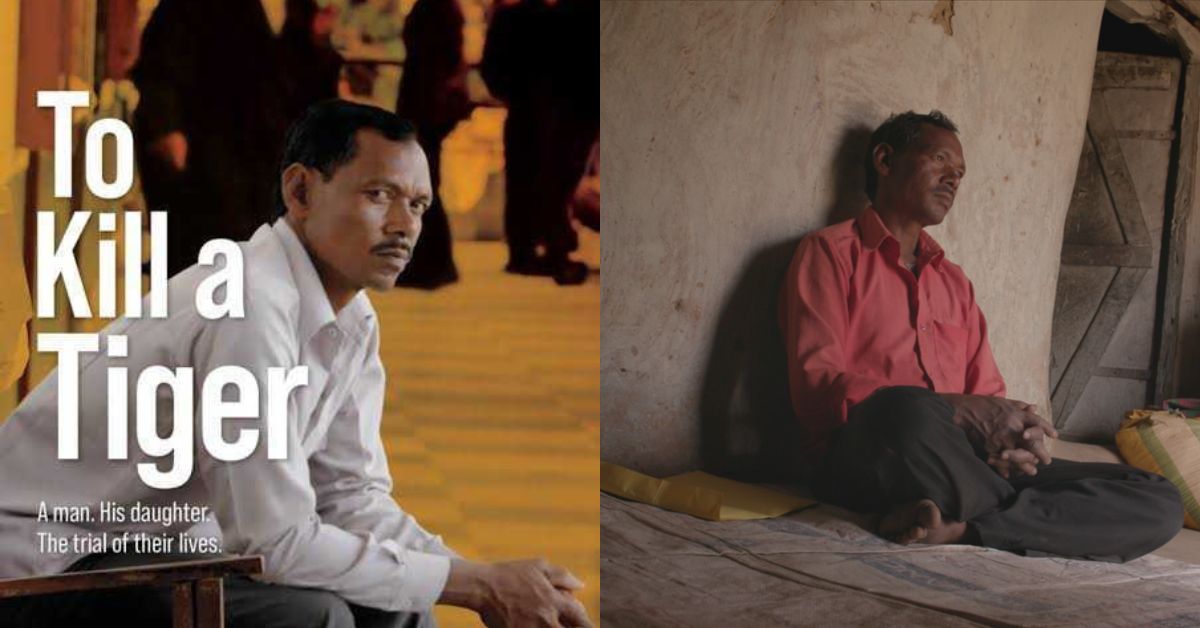‘To Kill A Tiger’ Nominated at Oscars: How a Father Brought His Daughter’s Abusers to Justice
Nominated for the Oscars, Nisha Pahuja's documentary 'To Kill A Tiger' is about a father’s courageous pursuit of justice for his 13-year-old daughter. Here's the real life story of Jharkhand's Ranjit.

Delhi-born filmmaker Nisha Pahuja’s ‘To Kill A Tiger’ has been nominated for the Best Documentary Feature at the 96th Annual Academy Awards or the coveted Oscars.
The documentary film tells the story of Ranjit, a farmer from Jharkhand, who demands justice for his daughter Kiran, after she was sexually assaulted by three men when she was just 13. It is the tale of incredible resilience by this father-daughter duo in the face of challenges, posed by the villagers as they pressurise Ranjit to withdraw the case. But he continues despite every roadblock and stands by his daughter as she wishes the perpetrators be brought to justice.
Beyond all, the movie has been praised for being a poignant story of a father’s love for his daughter, and the young teenager’s resolve to fight for justice.
“Their story, their struggle, their commitment to justice, the fact that as a man, he (Ranjit) stood by his daughter, which is so rare. The film is about the underdog, a David vs Goliath story, and it’s a film about love,” said Pahuja to The Hollywood Reporter.
Filmmaker Nisha Pahuja, who is based in Toronto, Canada, had actually set out to shoot a different documentary — about an NGO in Jharkhand which was working on a sensitisation program with men and boys. But during the shooting of the documentary, Pahuja heard about Kiran and Ranjit, and started filming their story.
‘My fear goes away when I think of my daughter’
In April 2017, when Kiran was returning home from a wedding, she was sexually assaulted in the woods by three men. When she finally made it home, she told what happened to her father, who immediately went to the police, who arrested the three men.
But what followed makes the tale harrowing. Going against the entire village, the film follows Ranjit from the time he first reports the crime and his journey over 14 months as he pursues justice and ensures that the criminals are brought to trial.
It documents how village elders expected Kiran to marry one of her abusers. A woman in the village is heard saying, “This could have been settled in the village. They already had sex, might as well get them married”, which shows the stark reality for many abused women, which is scary.
Against this backdrop and mindset, the relentless pursuit of justice in the face of pressure and intimidation to drop the case is worth every plaudit. Ranjit, his wife Jaganti, and Kiran remain unfazed. “When I think of Kiran, every fear goes away,” remarks Ranjit in the film.
“Ranjit simply refused to accept the status quo and, because of that, showed us that change is possible,” Pahuja told The Guardian.
In fact, as Kiran turned 18 by the time the editing of the documentary film was completed, she chose to come on the screen, not wanting to remain hidden. She wished to encourage other survivors through her story.
“The film would also connect with many on its quotient of resilience and how we can go that extra mile when it comes to protecting those we love. On its surface, it may feel like a film from India but it’s actually a film about what it feels to be a human. That’s why it continues to resonate, touching something deep inside,” Pahuja said to The Federal.
The now Oscar-nominated film documentary ‘To Kill A Tiger’ was released in September 2022 and has been screened in film festivals across the world, receiving over 20 international awards — including the Best Canadian Film at the Toronto International Film Festival, the Best Documentary at New York Indian Film Festival and Palm Springs International Film Festival.
Edited by Pranita Bhat
If you found our stories insightful, informative, or even just enjoyable, we invite you to consider making a voluntary payment to support the work we do at The Better India. Your contribution helps us continue producing quality content that educates, inspires, and drives positive change. Choose one of the payment options below for your contribution- By paying for the stories you value, you directly contribute to sustaining our efforts focused on making a difference in the world. Together, let’s ensure that impactful stories continue to be told and shared, enriching lives and communities alike. Thank you for your support. Here are some frequently asked questions you might find helpful to know why you are contributing?

This story made me
- 97
- 121
- 89
- 167













